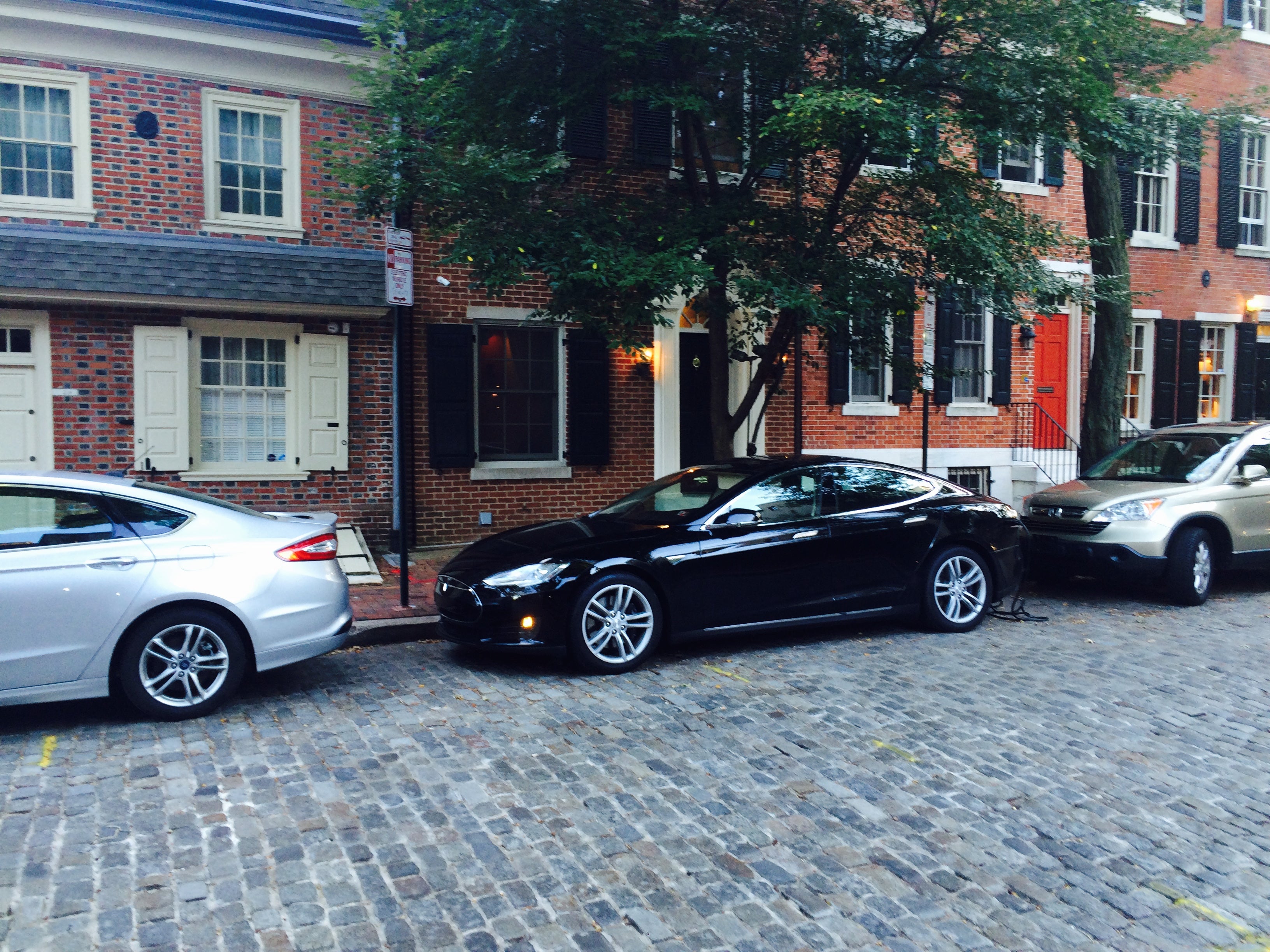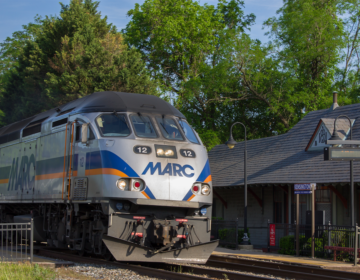City officials sound death knell for a controversial electric vehicle parking privilege

A city task force charged with creating new policies to promote electric vehicle (EV) use in Philadelphia called for the elimination of a contentious parking program intended to encourage use of the eco-friendly cars on Thursday.
“The… program is not reliably accessible to the public. It is not scalable; it does not meet the needs of EV owners without access to curbside parking, and it has had limited effectiveness in encouraging more EV use,” the task force stated in a report that contained the recommendation, along with a number of others that city officials hope will be used to guide future EV legislation. Getting more drivers to trade in traditional gas-guzzlers for lower-emission hybrids or EVs is a part of the city’s plan to shrink its carbon footprint yet the city lags behind other places in adoption of the technology.
The recommendation likely signals a final death knell for the program, which was suspended by the City Council in April in response to complaints from residents. Within hours of the city’s release of the report, City Councilmen David Oh and Mark Squilla introduced a bill to implement the task force recommendation.
The city initiative enabled Philadelphians to apply for a special permit to install a curbside charger and designate a parking space in front of their home as EV-only. The permit holder was responsible for purchasing and installing the street front power station — an investment of $2,000 to $5,000 in exchange for the urban luxury of a spot close to home that is open to precious few other drivers. While the program received a positive reception when it was rolled out as an incentive to encourage city drivers to go electric, it quickly drew the hackles of residents who complained about losing scarce street parking to the reserved spaces only able to be filled by plug-in electric and hybrid cars. When the council suspended the program last spring, there were only 68 active participants.
Beyond the recommendation to ax the suspended program, the report contains few specific policy recommendations. Under the headline, “create more publicly available charging stations,” the report notes that “future efforts should explore programs and policies that address the charging needs of EV users in the City.” The report’s authors go on to suggest that city officials “proactively seek solutions that address the charging needs of residents who lack access to residential charging.”
Another slightly more specific suggestion focused on the potential for city-built fast-charging stations. Especially compared to the few minutes it takes to fill up a tank, recharging an EV is often a time-intensive process. Regular home outlet chargers can take 10-20 hours, whereas slightly upgraded charges take 4-8 hours. But even the fast chargers, which often require significant electrical grid upgrades, still take up to 30 minutes to recharge. Those lengthy times mean most EV owners depend on a regular charge when they park at home or at work. But battery technology is rapidly improving, said Chris Puchalsky, director of policy and strategic initiatives at the city’s Office of Transportation and Infrastructure Systems (OTIS). “Ten years ago, battery range was very short — you didn’t get a lot of charge, so charging the vehicle every night was important,” he said. “Now based on the expanding range of vehicles and the average trip distance in Philadelphia, it’s common that a lot of people might only need to charge once a week.”
Puchalsky and his colleagues said they purposefully avoided getting too specific in the report, and that the fast-evolving technology was one reason why.
“It was intentionally vague to help inform Council and not prescribe actions but to help inform their future discussions and policy action,” said Patrick Clark, a transportation planner at the “We recognize that is the limitation of the task force, but we’re also working in a rapidly changing industry with a rapidly changing technology.”
The lack of specifics could also encourage the city to bring in other partners to help advance policy, Puchalsky said.
“This isn’t something the city can do alone,” he said. “In fact, working with partners is the only way to go forward. It’s critical, and it’s also best practices from other cities, that we work with a wide variety of partners and stakeholders.
The final report released on Thursday reflected many of the same ideas and priorities as a draft released in January. One big change, however, is a slower winding-down of the existing EV program. In the latest recommendation, EV-only permits wouldn’t be discontinued for 15 years, though if a permit holder sold their home, the permit would not transfer to the buyer.
That change may have been intended to appease a group of EV parking permit holders who have sued the city over the program’s rollback. If that was the goal, it doesn’t seem like the city met its mark.
“I am disappointed specifically in the recommendations regarding the existing permit holders,” said Stephan Matanovic, a lawyer for the three permit-holding litigants, who are seeking class status to represent the remaining 65. “It does nothing to address our main concern, which was: We bought these cars, we bought this infrastructure, and the city has basically taken it away from us.”
The task force would not amend changes Council made to the program last year, which made the parking spots EV-only just at night, allowing anyone to park in them during the day. That, Matanovic argues, amounts to a regulatory taking without due process of the sizable investments the permit-holders made to install the chargers. The lawsuit currently awaits a judges decision on the city’s motion to dismiss.
Philadelphia lags behind the region in the adoption of EVs. As of last year, city residents owned 733 EVs, a tiny fraction of the 7,923 owned throughout Southeastern Pennsylvania.
That’s despite the fact that, nation-wide, EV sales have boomed 800 percent over five years, from 18,000 in 2011 to 144,000 in 2016. Despite that fast growth, however, EVs remain a small fraction of the overall U.S. car market, which sold 17.5 million new cars and trucks in 2016. EVs cost more up-front than similar models using internal combustion engines, although advocates say reduced fuel costs in time can make up for the larger initial investment.
But charging remains a large barrier-to-entry for many, as the report notes. Even in the remotest parts of the nation, where you can drive for hours without seeing another soul on the road, most can travel assured by the knowledge that they will eventually come across a place to fill up their gas tank. Even in some of the most progressive parts of Philadelphia, however, finding a charging station can be a challenge: There are just 106 public EV chargers — the electric equivalent of an individual gas pump, not an entire gas station — throughout Philadelphia, per the report. That’s far less than Seattle (401 chargers), Los Angeles (1,456 chargers), and San Francisco (605 chargers).
And that’s a challenge compounded by a defining feature of Philadelphia’s built environment: The rowhome. Unlike their suburban peers, most Philadelphians lack driveways and garages. If they own cars, they mostly park them on the street.
WHYY is your source for fact-based, in-depth journalism and information. As a nonprofit organization, we rely on financial support from readers like you. Please give today.






